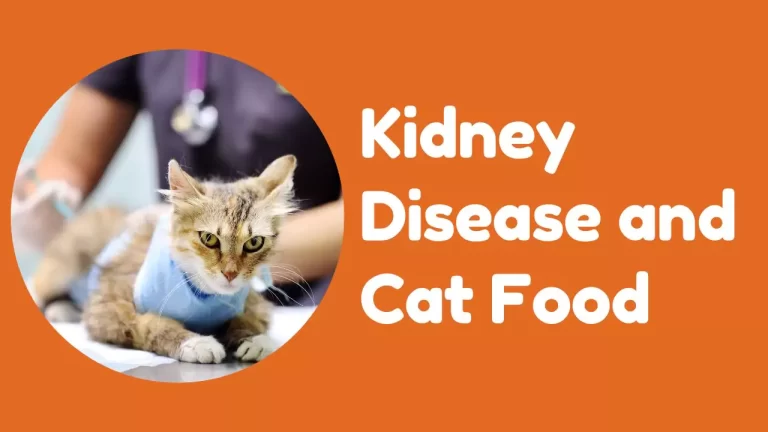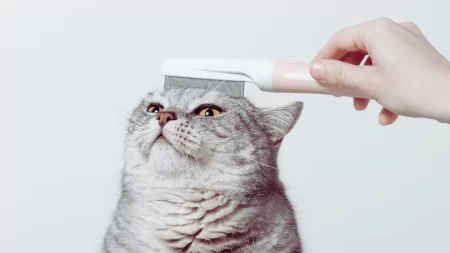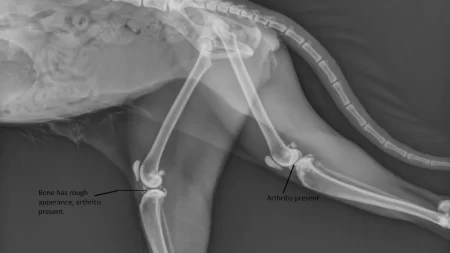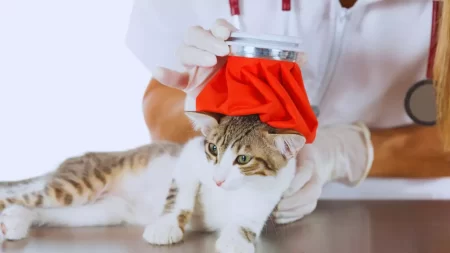You may be wondering what to feed your cat if you’ve just learned that it has Kidney Disease.
Among senior cats, kidney illness is quite prevalent and sometimes fatal. Some of the symptoms it might bring on include weakness, fatigue, excessive urination, and vomiting.
Kidney disease management and damage prevention are greatly aided by dietary considerations.
This article will describe Kidney Disease, its effects on your cat, and the types of food you should feed them.
Understanding Kidney Disease in Cats
Causes and Symptoms
Kidney disease develops when the kidneys cannot filter blood waste and poisons. Infections, trauma, genetic abnormalities, cancer, and age may cause this. Waste compounds in the blood from renal failure induce symptoms like:
- Weight loss
- Loss of appetite
- Vomiting
- Diarrhea
- Lethargy
- Bad breath
- Ulcers in the mouth
- Increased thirst and urination
- Dehydration
- Anemia
- High blood pressure
Acute and chronic kidney disease exist. Acute renal illness is abrupt and severe. Untreated, it may kill. Aging, genetic abnormalities, and other disorders may cause chronic kidney disease, which progresses. Proper nutrition and attention can control it.
Importance of Diet
Diet is crucial to cat renal disease management. Kidney-friendly diets aim to:
- Reducing trash to reduce the renal burden.
- Maintaining proper phosphorus, calcium, potassium, sodium, and other mineral levels affects kidney and bone health.
- Watering to avoid dehydration.
- Providing adequate calories, protein, vitamins, and antioxidants for health.
Choosing the Best Cat Foods for Kidney Disease
1. Low-Phosphorus Options
One of the most important nutrients to limit in a kidney-friendly diet is phosphorus. Phosphorus is a mineral that is essential for bone health and energy production. However, when the kidneys are damaged, they cannot excrete excess phosphorus from the blood. High levels of phosphorus can cause further damage to the kidneys, as well as bone loss and soft tissue calcification.
Therefore, cats with kidney disease should eat foods that are low in phosphorus. The recommended level of phosphorus for cats with kidney disease is less than 0.5% on a dry matter basis (DMB). This means that for every 100 grams of dry food, there should be less than 0.5 grams of phosphorus.
Some examples of low-phosphorus cat foods are:
- Hill’s Prescription Diet k/d Kidney Care
- Royal Canin Veterinary Diet Renal Support
- Purina Pro Plan Veterinary Diets NF Kidney Function
These foods are specially formulated to meet the nutritional needs of cats with kidney disease. They are also low in sodium and high in omega-3 fatty acids, which can help reduce inflammation and blood pressure.
2. Renal Diets
Another option for cats with kidney disease is to feed them a renal diet. A renal diet is a type of therapeutic diet that is designed to support kidney function and prevent further deterioration. Renal diets are different from regular cat foods in several ways:
- They have a lower protein content than regular cat foods. Protein is essential for cats, but it also produces waste products that need to be filtered by the kidneys. By reducing protein intake, renal diets can help lower the workload on the kidneys and prevent proteinuria (protein loss in the urine).
- They have a higher quality protein source than regular cat foods. The quality of protein refers to how well it can be digested and utilized by the body. High-quality protein sources have a high biological value (BV), which means they contain more essential amino acids than cats need. By feeding high-quality protein sources, renal diets can help prevent muscle wasting and malnutrition.
- They have a lower phosphorus content than regular cat foods. As mentioned earlier, phosphorus is a mineral that can cause problems for cats with kidney disease. By limiting phosphorus intake, renal diets can help prevent hyperphosphatemia (high blood phosphorus levels) and its complications.
- Regular cat food has less potassium. Cats need potassium for heart and neurological health. However, injured kidneys lose potassium in the urine. Hypokalemia may induce weakness, muscular twitching, and cardiac arrhythmias. Renal diets increase potassium consumption to avoid hypokalemia.
Some examples of renal diets for cats are:
- Hill’s Prescription Diet k/d Kidney Care
- Royal Canin Veterinary Diet Renal Support
- Purina Pro Plan Veterinary Diets NF Kidney Function
These foods are specially formulated to meet the nutritional needs of cats with kidney disease. They are also low in sodium and high in omega-3 fatty acids, which can help reduce inflammation and blood pressure.
3. High-Quality Protein Sources
If you choose to feed your cat regular cat food instead of a low-phosphorus or renal diet, you should make sure that the protein source is high-quality. As mentioned earlier, high-quality protein sources have a high biological value (BV), which means they contain more essential amino acids than cats need. By feeding high-quality protein sources, you can help prevent muscle wasting and malnutrition.
Some examples of high-quality protein sources for cats are:
- Chicken
- Turkey
- Fish
- Eggs
- Liver
These foods are rich in protein and have a high BV. They are also low in phosphorus and sodium, which can benefit cats with kidney disease.
4. Importance of Hydration
Hydration helps cats with renal problems. Kidney illness causes dehydration in cats. Constipation, UTIs, and kidney stones may result from dehydration.
Thus, kidney-diseased cats should always have fresh water. You can also encourage them to drink more by:
- Providing multiple water bowls around the house
- Using a fountain or a dripping faucet
- Adding water or broth to their food
- Offering wet food instead of dry food
Wet food has a higher moisture content than dry food, which can help increase your cat’s water intake. Wet food also has other benefits for cats with kidney disease, such as:
- It has a lower phosphorus content than dry food
- It has a higher protein content than dry food
- It has higher palatability than dry food
Some examples of wet foods for cats with kidney disease are:
- Hill’s Prescription Diet k/d Kidney Care Wet Food
- Royal Canin Veterinary Diet Renal Support Wet Food
- Purina Pro Plan Veterinary Diets NF Kidney Function Wet Food
Kidney-diseased cats require these meals. Omega-3 fatty acids and reduced salt lower inflammation and blood pressure.
5. Consulting with a Vet
Before you make any changes to your cat’s diet, you should consult with your vet. Your vet can help you determine the best food for your cat based on their specific condition and needs. Your vet can also monitor your cat’s kidney function and blood levels regularly and adjust their diet accordingly.







